Mule-ears, Mule's Ears, Northern Mule-ears, Northern Mule's Ears, Northern Wyethia,
Smooth Dwarf Sunflower
Wyethia amplexicaulis
Synonym: Espeletia amplexicaulis
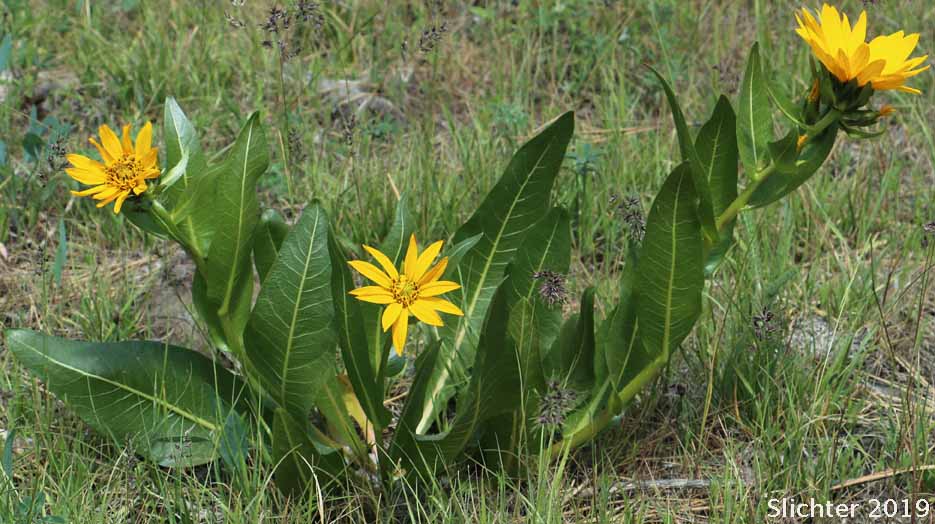
Northern mule's ears in bloom on open slopes above the Wenas Campground, Yakima County, WA.......May 24, 2019.
Characteristics:
Northern wyethia is a balsamroot look-alike. It is a fairly handsome
plant, with erect stems and long basal leaves, and large yellow flower head.
The herbage is entirely smooth and shiny. The texture is resinous. The leaves
are stiff with entire or sometimes toothed margins. The basal leaves are enlarged
with elliptic or lance-elliptic blades from 20-60 cm long and 5-16 cm wide.
The base of the leaves tapers gradually to the petiole. The venation is very
prominent. The stem leaves are smaller, sessile, and lance-ovate to ovate in
shape. The stem leaves range from 9-25 cm long and 2-6 cm wide. The solitary
stem is stout, somewhat lax, and ranges from 30-80 cm tall.
One to several flower heads may be found atop the stem. The central
one is largest. The central head contains 13-21 yellow rays surrounding the
disk. The lateral heads may have only 8 rays around the disk. The rays measure
2.5-5 cm long. The involucral bracts are wide and herbaceous, and often surpass
the disk.
Importance/ Uses:
Mule's ears indicate overused rangeland. As forage, only the
flowers are consistently eaten (the leaves are too leathery). Mule deer and
bear may eat the leaves only early in the spring, when they are more succulent.
The seeds and flowers are consumed by sharp-tailed grouse and Columbian ground
squirrels. The roots were boiled and chopped for their medicinal qualities by
the Nez Perce.
Habitat:
Northern wyethia is found on open, moist slopes to 2600 meters.
Range:
Northern wyethia is found from central Washington east to western Montana,
south to northern Nevada and Utah.
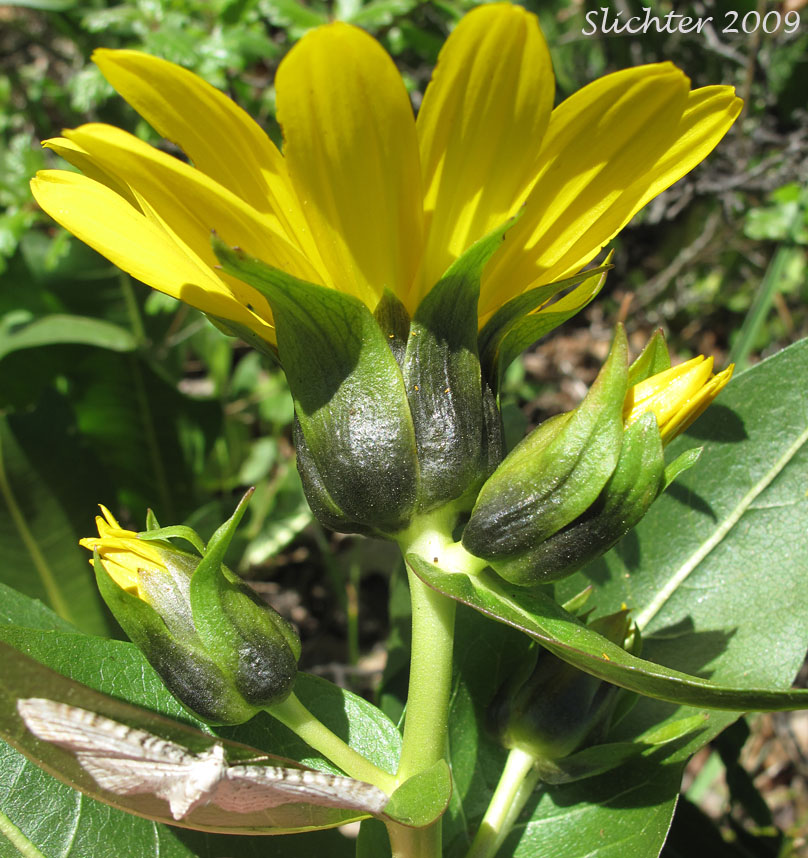 -
- 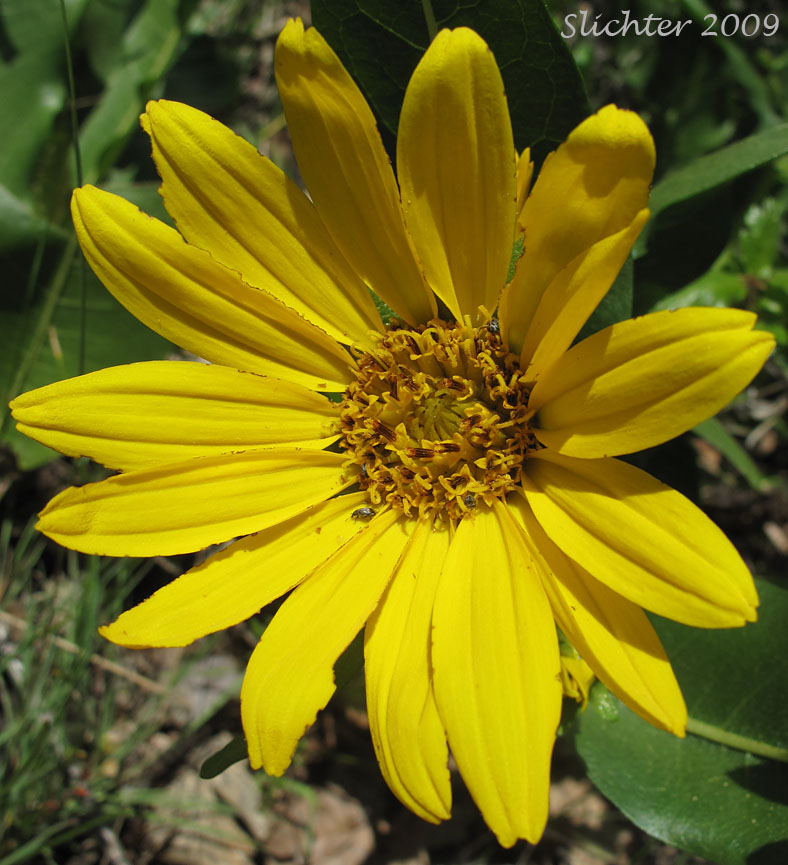
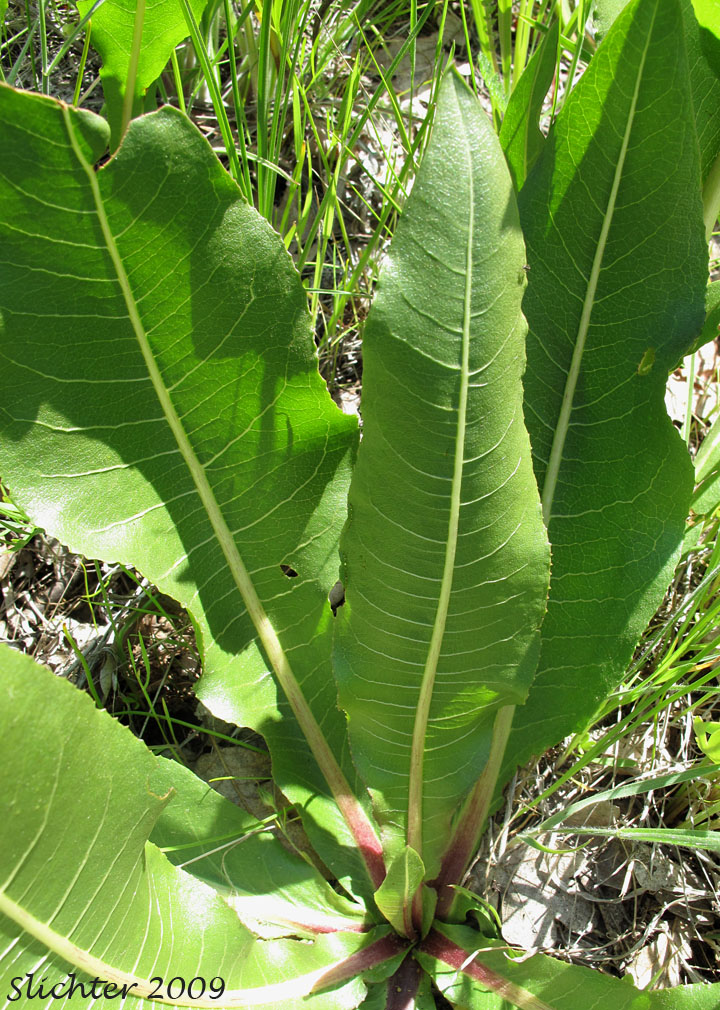 -
- 
Close-up views of the flower head, involucre and basal leaves of northern mule's ears as seen at a small stock pond along Old Headquarters Road in the Klickitat State Wildlife Area.........May 24, 2009.

Mule's ears as seen along Forest Road #16 in Logan Valley, Malheur National Forest.........July 1, 2010.
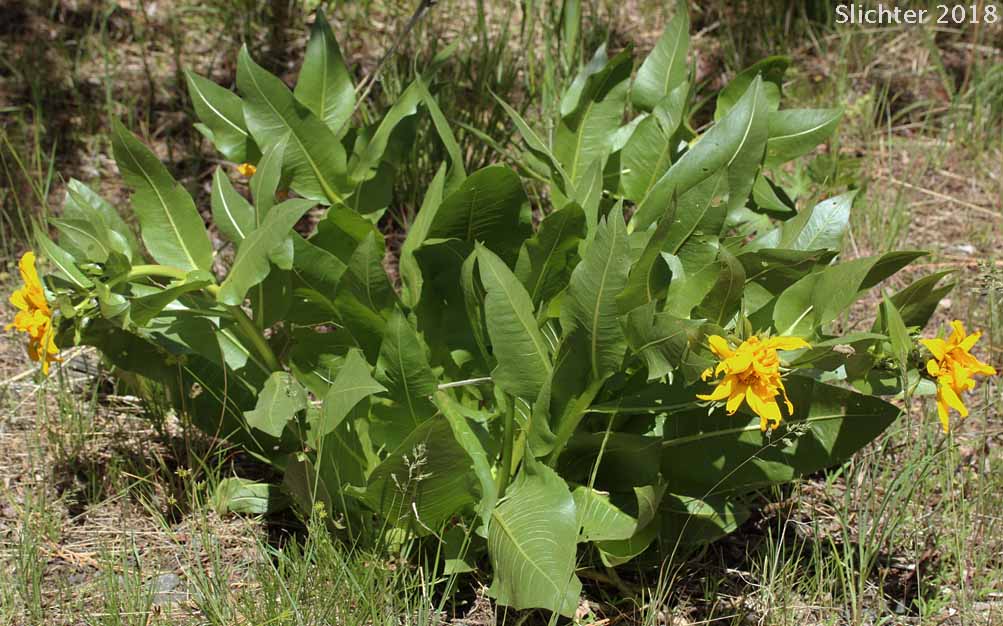 -
- 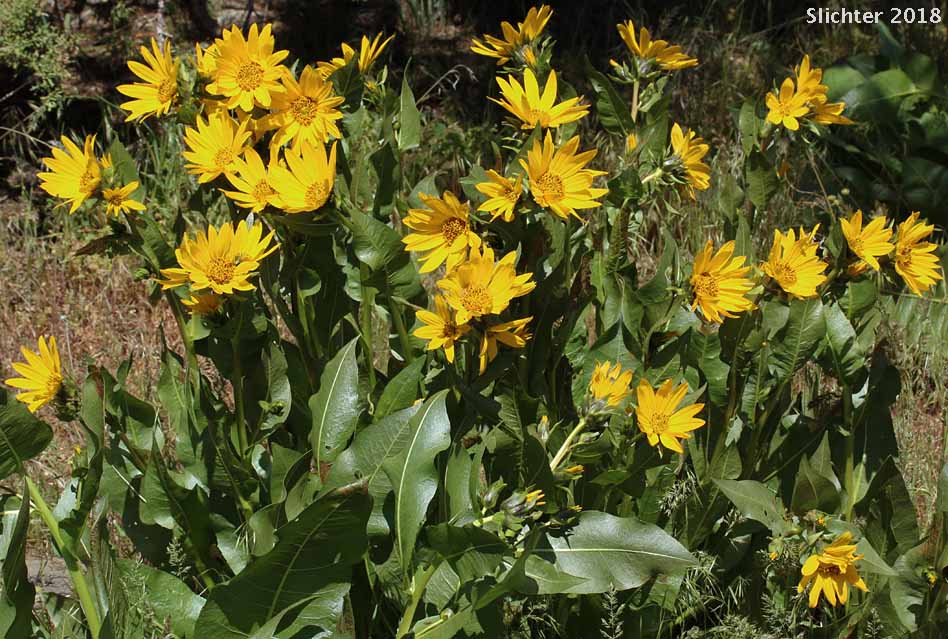
Mule's ears observed in vernally moist prairie adjacent to Indian Creek, northwest corner of Big Summit Prairie, Ochoco National Forest.......May 27, 2018.
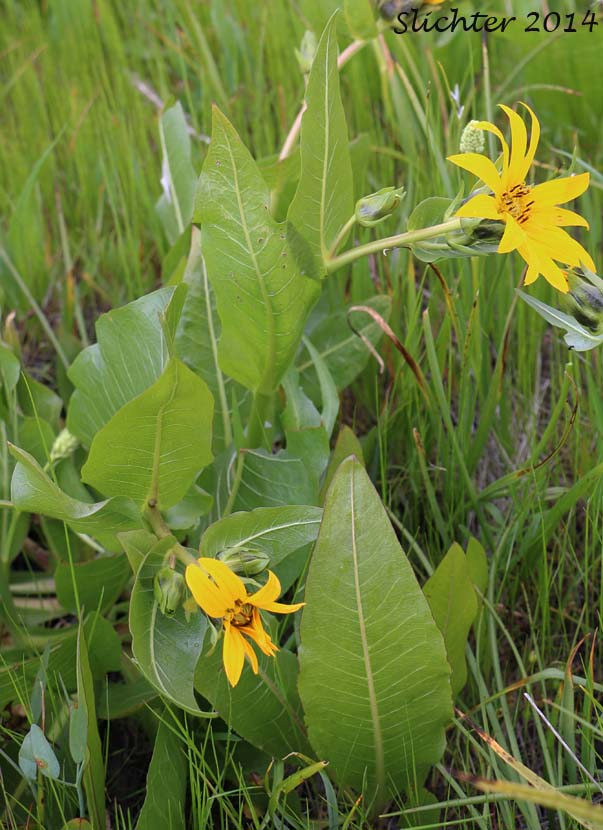 -
- 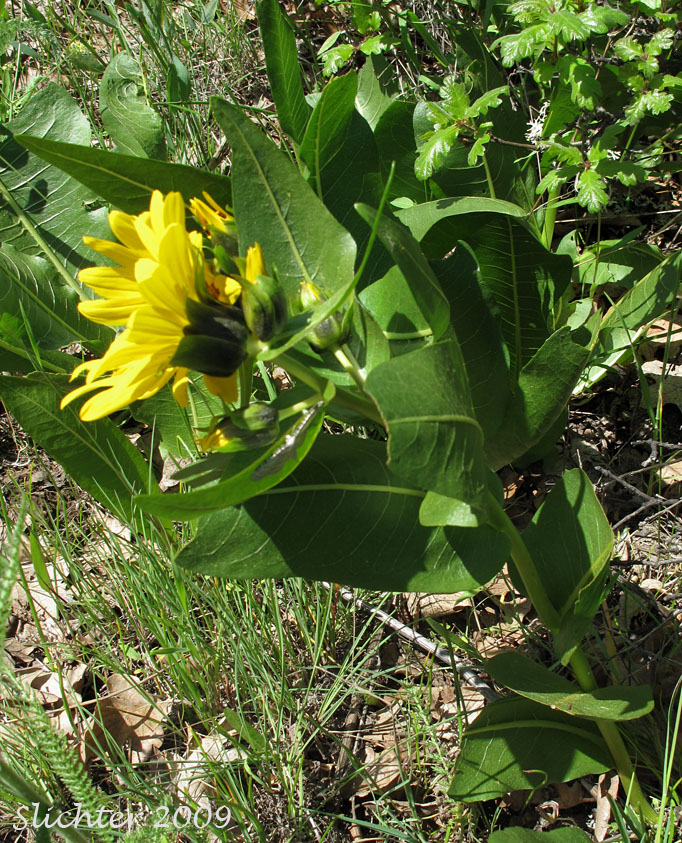
Mule's ears as seen at left Brooks Memorial State Park near Satus Pass, Washington...........May 19, 2014. Northern mule's ears as seen at left on slopes above the Klickitat River in the Klickitat State Wildlife Area.......May 24, 2009.
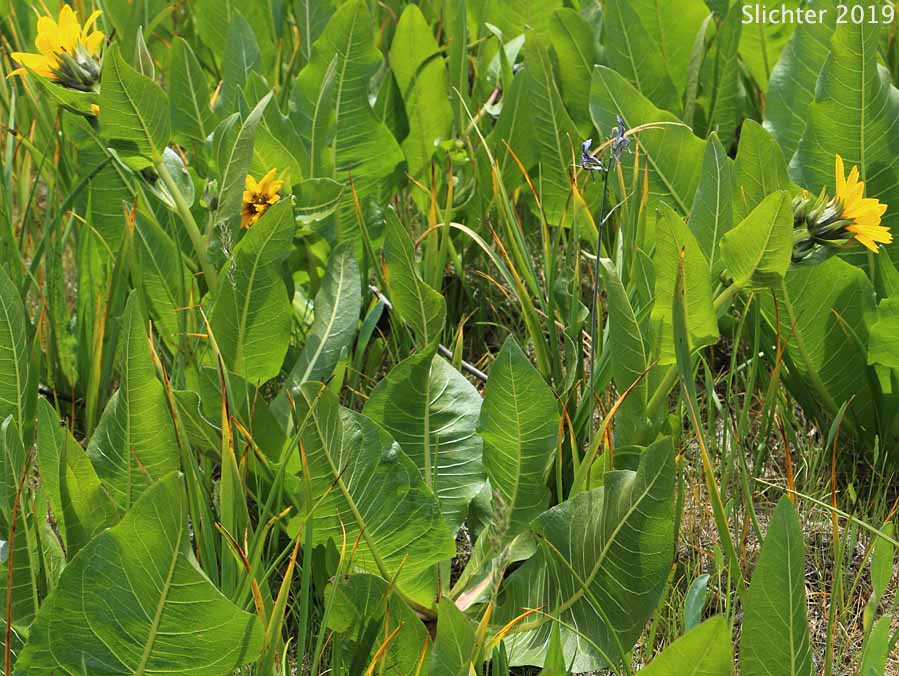 -
- 
Mule's ears as seen at left on some of the vernally moist higher balds at Brooks Memorial State Park near Satus Pass, Washington...........May 13, 2019. The photo at right shows mule's ears in wetlands along Dry Creek about one-half mile upstream from Wenas Creek, DNR lands in Yakima County, WA......May 29, 2022.
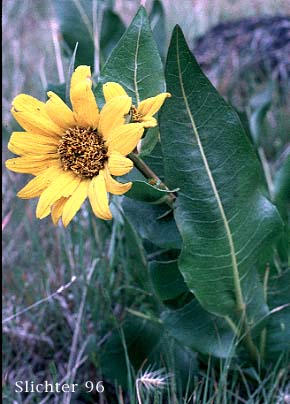 -
- 
Northern wyethia as seen at left from Hunter's Prairie, near Bear Springs R.S., Mt. Hood
N.F. ....May 28, 1994.
The photo at right shows the vernally moist meadow habitat of northern wyethia as seen along Forest Road 41, Umatilla National Forest......June 17, 2023.
Paul Slichter